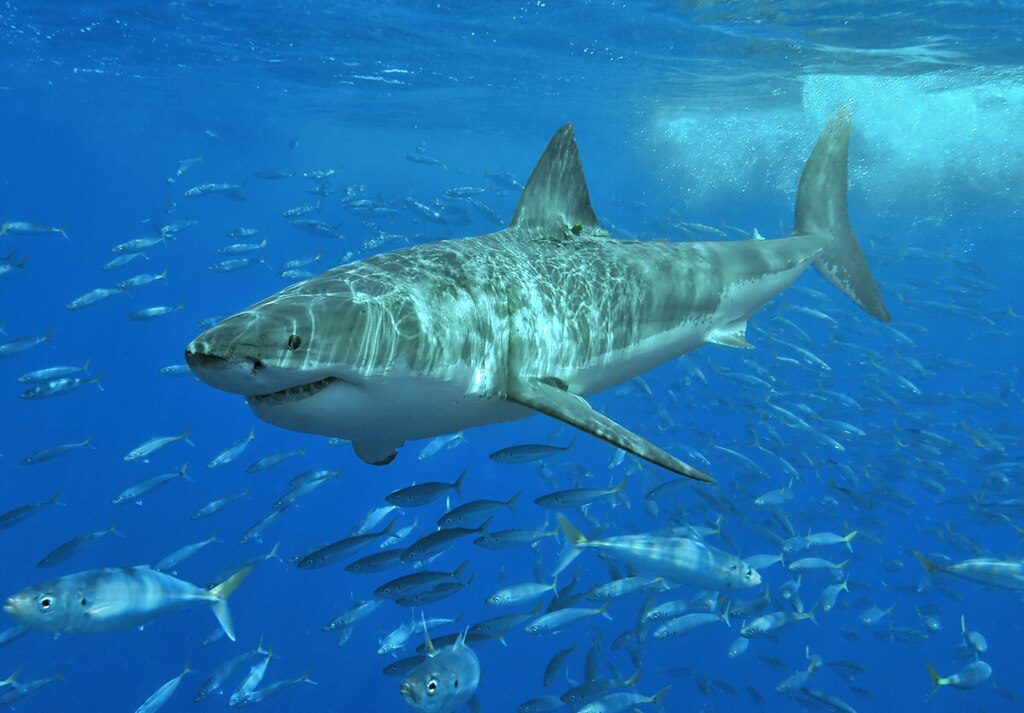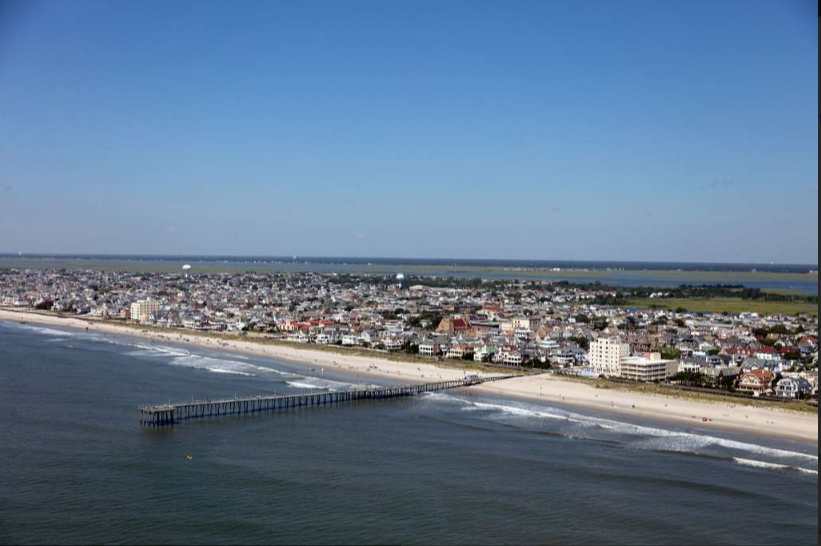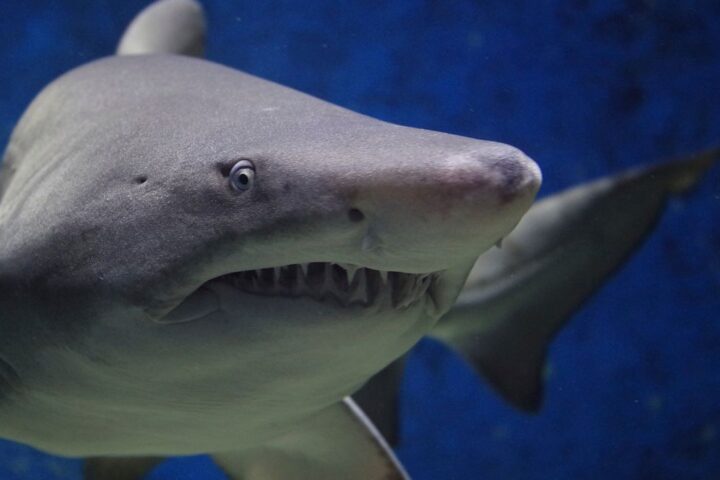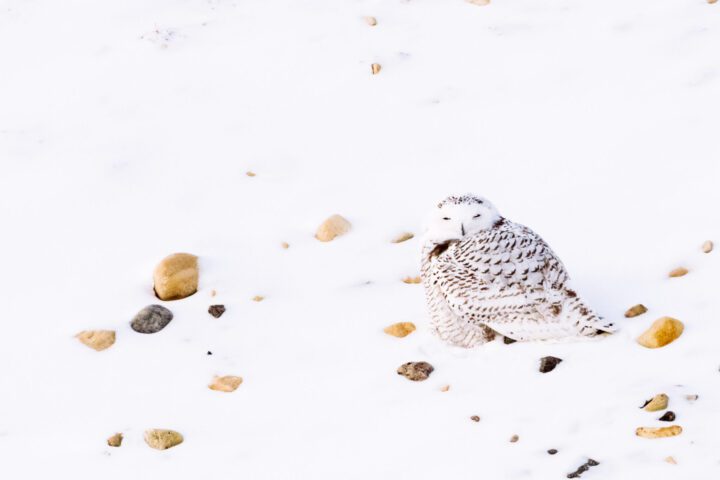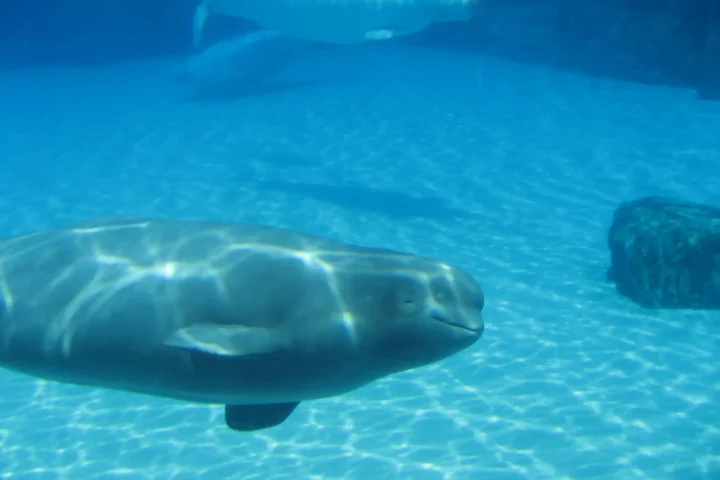A routine dive turned extraordinary last week when two scuba divers came face-to-face with a great white shark near Hubbards, Nova Scotia.
Last Wednesday, 75-year-old visitor John Brooks and his guide Eric Peterson were diving in waters off Fox Point Beach, approximately a 40-minute car ride from Halifax, when they encountered the shark just an arm’s length away.
“We’re swimming along, all of a sudden Eric pulls me by my strap there and he points and I look and there was this amazing creature,” said Brooks, who initially thought, “We gotta get out of here. This is his home. This is not ours.”
Eric Peterson, who works as an instructor at Torpedo Rays Scuba Adventures and has logged more than 500 dives across various global locations, first noticed the shark roughly ten minutes after they entered the water.
“It just kind of came up out in the murk, and [we] just saw these big black eyes and this Cheshire grin,” Peterson recalled the day after the encounter.
The shark, estimated to be a juvenile around 3 meters long, circled the divers for approximately 2-3 minutes before swimming away. In video footage captured by another diver, the shark can be seen surrounded by banded rudderfish.
Peterson’s experience guided their response to the potential danger. “We just sat on the bottom on our knees and just let the shark come up and sniff us,” he explained. “It came straight up to us, like playing a game of chicken, had to stare ’em down, and then she passed to the left, disappeared, and came out of the murk two more times.”
The shark appeared interested in their air bubbles, swimming up and over the divers before leaving the area. Neither diver was injured during the encounter.
This marks an unusual event for the dive site, which is commonly used for training by Torpedo Rays Scuba Adventures. “We must have been there 1,000 times and no one’s ever seen a great white before, so the rest of the shop is burning with envy right now,” Peterson said.
Shark expert Chris Harvey-Clark, who recently retired as a veterinarian from Dalhousie University, points out that this sighting fits into a broader pattern. “This will be the ninth diver encounter now in the Maritimes in three years, which is just unprecedented,” he noted in an interview.
Another great white was spotted the same day off Paddys Head in Indian Harbour, further indicating increased shark activity in the region.
Similar Posts
The rising frequency of shark sightings along Canada’s East Coast has prompted new safety measures. In mid-2024, Dalhousie University’s Ocean Tracking Network began developing an initiative to install shark warning signs at about a dozen public beaches in Nova Scotia.
Experts attribute the increased sightings to multiple factors. Conservation efforts have helped great white shark populations recover from severe declines in the 1970s and 1980s.
Additionally, warming ocean temperatures due to climate change have made it easier for many marine species to expand their range northward.
For Brooks, a Massachusetts native now living in Florida who was visiting Nova Scotia for the first time, the encounter left a lasting impression. “I [still] get shivers… up and down my spine,” he said a day after the event.
Despite having fewer than 50 dives under his belt, Brooks has led an adventurous life—serving in the Vietnam War, running multiple marathons, and motorcycle trips across North America. Though encountering a great white shark hadn’t been something he planned for, Brooks now treasures having had such a rare wildlife experience.
As shark sightings continue to increase in Atlantic Canadian waters, divers and swimmers are advised to remain vigilant and follow safety protocols—including staying calm and avoiding sudden movements if they encounter these powerful predators.
